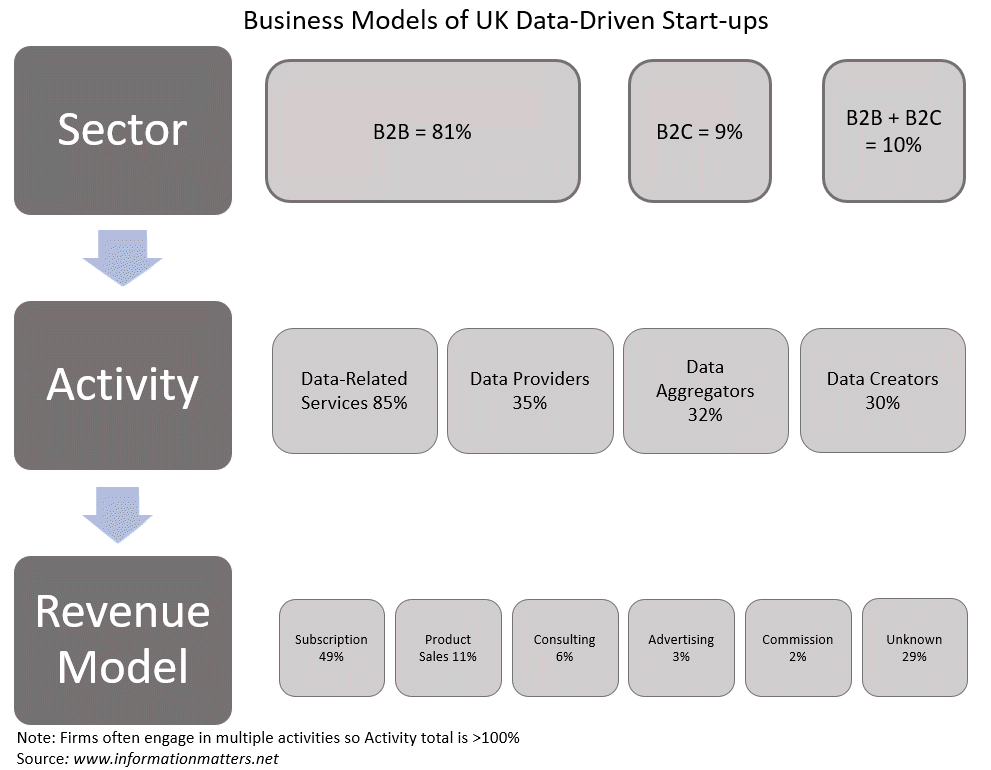UK Data-Driven survey
“Data-driven innovation forms a key pillar in 21st century sources of growth” – OECD
I recently completed a survey of more than 1000 UK-based start-ups that were using data to create innovative products and services. Just over 500 of these firms could be said to be data-driven in that data was a core component of their business models. A detailed analysis of a random sample of 100 of the companies revealed some interesting facts about their sectors, activities and revenue models.
Key Findings
- Over 80% of the companies are B2B;
- 85% offer data-related services – mainly analytics and data storage;
- 49% have subscription-based revenue models.
See Footnote (1) for explanation of terms
Some Noteworthy Data-Driven Start-ups
The innovative nature of many of these firms in terms of how they add value to data is interesting. Here is a small sample of some that stood out.
Mycarematters – a finalist in the Innovating for Ageing awards in 2019, Mycarematters is an online service that securely stores an individual’s non-medical requirements and preferences. This can be used by health workers to ensure patients, particularly those unable to express their wishes, are treated respectfully.
Homeppl – the company was backed by the Techstars Barclays London Accelerator in 2017 and aims to make the validation of suitable tenants for private renting more streamlined. Renters can create profiles and upload verified details on previous addresses and financial status to speed up the checking procedures done by landlords and agents.
Doorda – the firm collects and collates open data from public bodies to save other companies needing to use the data from having to source and prepare the data themselves. As open data becomes a vital input for company’s innovation pipelines, Doorda is positioning itself as an important link in the process.
I shall be publishing another article soon on the platform strategies employed by the 100 companies analysed in this survey.
(1) Explanation of terms
B2B and B2C should be self-explanatory with B2B referring to firms that either sell products or services to other businesses while B2C firms sell to consumers. Some companies sell to both other businesses and direct to consumers.
Data-Related Services – these are firms which offer services such as analytics and data storage typically to other businesses.
Provider of Data – these are companies that provide access to third party data often as resellers.
Creating Data – this refers to firms that produce their own data and which then forms the basis of a service offering.
Aggregating Data – these are companies that combine data from a variety of third parties to create value-added services for other businesses.
Subscription / Licensing – a revenue model that relies on recurring subscription or licence fees.
Advertising – a revenue model that relies on advertising by other businesses to fund the product.
Consulting – firms which charge other businesses for advice and guidance on the use of data products.
Product Sales – companies that generate their revenues from the sale of physical products that generate data for users.
Commission – a revenue model which takes a percentage of income generated by customer use of data.

Martin De Saulles
Editor, Information Matters
Dr Martin De Saulles is a writer, analyst and lecturer specializing in the commercial applications of data.


